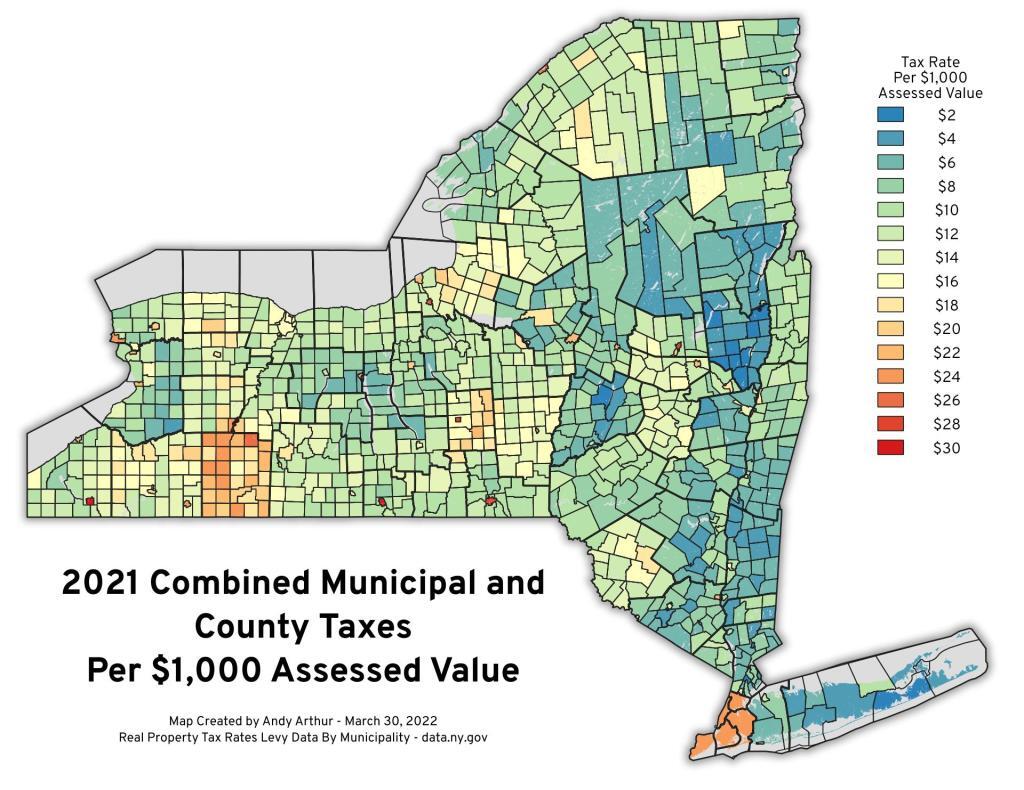Supreme Court to hear challenge to EPA ‘good neighbor’ rule that curbs pollution : NPR
Government
NYS IRC February 2024 Proposed Congressional Districts – 2020 Average Democratic Performance
Industrial Society and its Future
1970: “Come to Disneyland August 6 – Free food, free dope and free prizes (AK-47s) to the first million arrivals”
2021 Combined Municipal and County Taxes Per $1,000 Assessed Value
Allegany County is not a good value when it comes to county and local property taxes, with a county $13.17 per $1k assessment and many towns assessing an additional $10-12 per $1k. You might be able to score property cheaply there, but you'll pay some of the highest taxes in the state there on it.
You can get the data here: https://data.ny.gov/Government-Finance/Real-Property-Tax-Rates-Levy-Data-By-Municipality-/iq85-sdzs/data
You will need then to match it to SWIS code, which you can use this for: http://gis.ny.gov/gisdata/inventories/details.cfm?DSID=927
Conservative justices seem poised to weaken power of federal agencies – POLITICO
onservative justices on the Supreme Court on Wednesday pressed the Biden administration on whether ambiguous laws passed by Congress should be interpreted by judges, rather than by federal bureaucrats.
The high court’s eventual ruling could hand courts — including the Supreme Court itself — more power to strike down regulations on health care, the environment, immigration and virtually all other policy areas that are administered by federal agencies. That would strip power from the executive branch and make it harder for Joe Biden and future presidents to defend their regulatory agendas against legal challenges.

